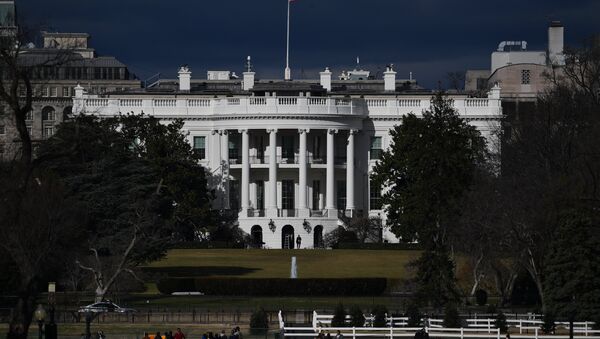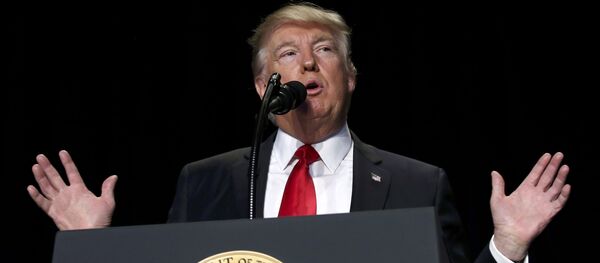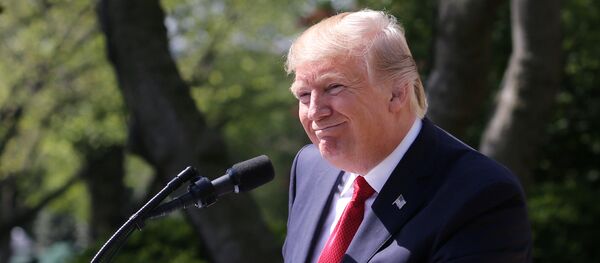The focus is now on Washington politics and on the President’s ability to overcome the special interests dominating the lawmakers’ sentiment. A forced delay on healthcare reform does not necessarily mean the White House will be equally paralysed when it comes to tax cuts, but the internal division within the GOP is a challenge for Trump to deal with.
Tax reform is not only crucial in ensuring the US economy will avoid a structural or cyclical recession looming within the coming 18 months, but it is also an important political goal for Donald Trump as President. Indeed, ever since Trump was elected into office, the US financial markets rallied by almost 20 percent, consumer sentiment surged, and the labour market continued to improve with the national unemployment rate having dropped to 4.4 percent.
Shockingly enough, the GOP-dominated Congress has thus far been rather obstructive in regard to Trump’s agenda, not only on healthcare, but also on the most urgent economic policy measures. Trump’s ability to get his tax plan through Congress has become a matter of utmost political importance, as further delays or a failure on economic reform could increase the chances of the Democratic Party to enjoy an electoral victory in the congressional elections in 2018. Such a development would effectively bury any reformist effort of the Trump administration.
"They (Trump administration) know they could really use a win," Larry Kudlow, an economics expert from Trump’s inner circle, said. "The president, from the get-go, has been much more comfortable with tax cuts than health care."
Paradoxically, the GOP lawmakers, who previously favoured an unconditional repeal of Obamacare and voiced their general approval of Trump’s proposed economic policy measures, are taking their time, abstaining from approving the President’s reforms. The White House’s reforms agenda has become subject to intra-GOP political negotiations, and it is only the perseverance of Trump and his team that can ensure the US economy will avoid a recession in the near-to-medium-term.
"On the political side, the biggest problem that Republicans could face in 2018 is not a partisan battle. It's a sense of incompetence and inability to govern that will be most painful," Josh Holmes, an adviser to GOP Senate majority leader Mitch McConnell, said (R-KY). "Unless they can figure out how to reverse this quickly, you can see where this cascades into more issues past health care."
House Freedom Caucus, the right-wing radicals in the Congress, said the proposed budget would lack conservative votes to pass the House.
Libertarian-leaning Republicans generally favour the tax plan and infrastructure spending proposals, but the most hardcore Conservatives see the new budget as not revenue neutral enough – in other words, Trump’s willingness to go deeper into debt for the sake of the projected expansion of the US tax base meets a widespread scepticism amongst the right-wing GOP lawmakers.
"It's still short of what it needs," Rep. Mark Meadows (R-NC) of the House Freedom Caucus said, adding that the budget must provide additional cuts on social spending.
Moderate Republicans, however, don’t mind Trump’s additional spending, which, they say, could draw support even from some Democrats.
"If we move too much in the mandatory area, then it will make tax reform that much more difficult to get. It's that basic," Rep. Charlie Dent (R-PA) said, calling for a compromise budget that would enable the White House to both revitalise the economy without hurting other articles of budget expenditures.
US Vice President Mike Pence, in the meantime, took an effort to bypass the Washington politics by presenting the Trump administration’s tax plan directly to US retailers. On Tuesday, Pence delivered a speech at the National Retail Federation event, winning the White House the explicit support of the American entrepreneurs.
"When it comes to your businesses, our tax plan is going to put American companies, including our retailers, back on a path to jobs and growth and better competitiveness," Pence said.
The tax plan would cut taxes from 35 to 15 percent for corporations, and from 39.5 to 35 percent for the wealthiest individuals, whilst also dramatically lowering tax rates for the middle and lower classes from the brackets of 33, 28, 25, 15, and 10 percent to just 25 and 10 percent, respectively.
This would allow the retailers to boost their scale of operation and extract larger profits from doing business, whilst US consumers would enjoy a windfall of money remaining in their pockets, which is expected to boost purchasing power and consumer spending, adding percentage points to the US GDP.





